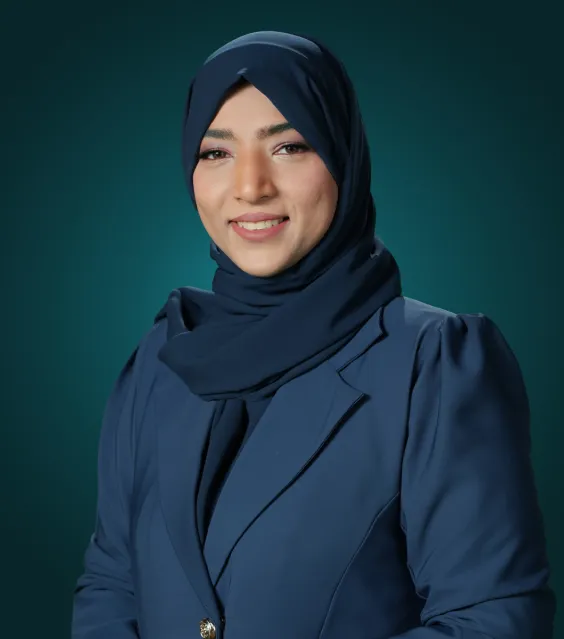Season 17 Innovators
Back to innovators
Razan Salem Bahabri

About Razan
Razan Salem Bahabri is from Saudi Arabia. Her academic journey began with a scholarship to the United States, where she earned a bachelor’s degree in biomedical engineering with a minor in pre-med from The Catholic University of America. She continued there with an accelerated track, earning a master’s in biomedical engineering and a joint master’s in engineering management.
After a brief career break to gain professional experience, she returned to academia to pursue a PhD in biomedical engineering, specializing in tele-rehabilitation using wearable sensors. She is also currently enrolled in a healthcare leadership program at Harvard Business School Online.
Bahabri has presented her work at multiple conferences and received recognition for academic and leadership excellence, including awards from the District of Columbia Council of Engineering and Architectural Societies. She was introduced to Stars of Science at a biomedical engineering conference where she was encouraged to apply.
“In the research world, we develop innovations, but we often struggle to turn them into marketable products,” she says. “I wanted to bring my idea to the world, with full clarity on the fact that the invention has come proudly from the Arab region.”
About the Project
Bahabri’s invention is a rehabilitation system that allows stroke patients to play interactive video games using hand gestures captured through wearable sensors. The same movements used to control the game also serve as therapeutic exercises, with progress data automatically sent to healthcare providers for confirmation and review.
“During the COVID-19 pandemic, many patients couldn’t access hospitals for therapy,” she explains. “I created this system to make home rehabilitation more engaging and effective.”
The system supports two-player interaction—allowing family members to participate—and encourages the use of both hands to support cognitive and motor function recovery. Unlike other solutions on the market, it integrates gaming, remote monitoring, two players mode, and real-time feedback for comprehensive rehabilitation.
The Impact
Bahabri’s goal is to revolutionize recovery and therapy in the Arab world and beyond through “healthy gaming.” With strong interest in the gaming sector, she sees her project as part of a larger vision—one that positions the region as a leader in digital health technology.
“This project can be our medical version of PlayStation or Xbox—born in the Arab world and shipped globally,” she says.
Her invention is currently designed for stroke rehabilitation but could expand to support children’s education, athletes’ recovery, and even fitness gaming for the general public. To aspiring Arab innovators, Bahabri encourages taking initiative—even if the path seems uncertain.
“Don’t be afraid to take risks,” she says. “There’s nothing to lose by trying.”
She also wants more Arab women in STEM to step forward and lead. As a judge at the International Science and Engineering Fair and a mentor to students, Bahabri hopes her Stars of Science journey will inspire future scientists and engineers.
